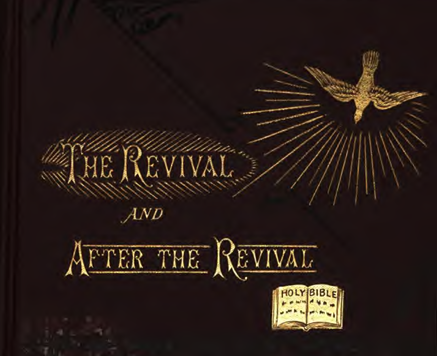There is a revival that is not so much a revival as an “opportunity” and an “awakening,” as when a church, already full of faith and zeal, seeks to win souls from the world by presenting special invitations and attractions and using special appeals and incentives. It is wintertime. The evenings are long. Work is not pressing. People have leisure. Yet the world and the flesh are particularly busy. Allures take on new forms. All the long winter evenings, the theater, billiards room, tavern, ballroom, and card parlor are open and ablaze. Now the church says, “Let us hold meetings.” Let us ring the church bell every night. Let us make our rooms look nice and appealing. Let us sing hymns full of grace. Let us preach a plain, emphatic, alarming, awakening, and comforting gospel. Let us unite with all the saints the world over during the “Week of Prayer,” and let us follow that concerted effort with continued efforts to set forth Christ and to unite men to Christ. It will confirm the faithful, reclaim the backslidden, revive the apathetic, instruct the ignorant, and give sinners another opportunity to choose God. We will use all the diverse gifts at our command. The preacher from another church will give the gospel as he accepts it. The evangelist with a peculiar call and endowment may use his gifts for God and souls.
Thus, “special meetings,” “protracted meetings,” and “revival meetings,” are held. The church most alive to God and least in need of a literal “revival” is the church most eager to hold such special seasons of service to awaken the careless and give the community an opportunity to decide for Christ.
Here, then, are two “revivals”—the one a divine, gracious movement within a dead or dying church, and the other a divine, gracious movement within a living church. The one is a renewal of its own life; the other is an effort for others. Both of these elements are present in most so-called revivals.
Thank God that revivals are possible, promised, and provided for under the Gospel of Christ!
By J. H. VINCENT
Updated 2023 Nathan Zipfel

